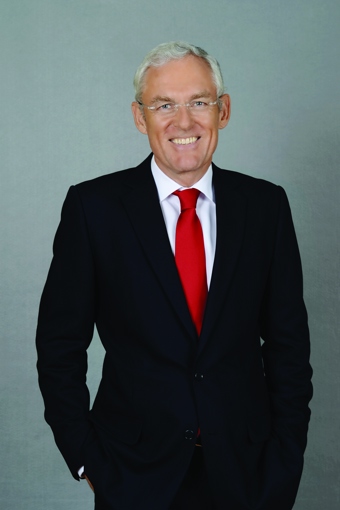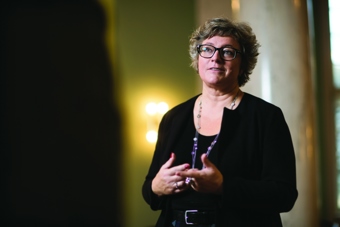Challenges are often opportunities. The industry can adapt to the new normal by embracing rather than rejecting it. Innovation is key. Solving today’s problems can facilitate tomorrow’s successes.
“We are now facing a more fragmented, challeng ing, and dynamic world picture than we would have anticipated just a year or two ago. In plain terms, this means that the world has become less secure… and less predictable.” Sturla Henriksen’s expression and tone are in stark contrast to the light dancing on the sparkling Oslo Fjord right outside the NSA’s imposing offices. His own view, for now, is consumed by the serious challenges confronting his 150 plus members.
A DEMAND FOR DETERMINATION
Shipping, Henriksen explains, is a key pillar of the Norwegian economy, with the maritime industry as a whole creating NOK 175 billion of annual value (2013). It is also the most global industrial sector and, as a result, the first to face the impact of inter national waves of change. Those waves, he says, are currently coming in
thick and fast. “We are witnessing a world undergoing dramatic upheaval, which has obvious ramifications for ship ping. There are escalating geopolitical tensions, low and uncertain economic growth, radical Islamist groups on the offensive, record numbers of refu gees, growing social inequalities, falling oil prices, and global climate challenges. Taken in isolation, every one of these factors demands attention, taken together …” Henriksen pauses for a second, “well, they de and a new sense of determination of unity, to face and overcome these challenges together.”
CAUTIOUS OPTIMISM
Despite the size and serious nature of these ‘waves’, Henriksen remains confident that his members, and the industry as a whole, can rise to the challenge. The most recent NSA Outlook Report an annual publication that takes the pulse of the Norwegian industry found that shipowners were “markedly less optimistic” in 2015 than 2014, but all segments, with the exception of offshore service owners, expected some growth. This ranged from anticipated growth of 5.1% for deepsea shipowners, down to 2.5% for their shortsea counterparts. But growth is growth, and that alone is a reason for optimism. “Even with today’s modest global rates, the world economy is set to double over the next couple of decades,” Henriksen states. “That means more demand for traditional shipping, more demand for offshore services and more demand for maritime goods and services.” He continues: “We face very real challenges that will impact the lives of individuals, our workplaces, and Norwegian value creation in the future. Yet the Norwegian maritime industry continues to make its mark on the world. “We are one of the world’s largest and most advanced maritime nations, and our position today is arguably stronger than ever. There are now more than 1,800 Norwegian-controlled ships and rigs in action around the globe and, in many cases, these are industry-leading, modern vessels with the very highest operational standards. “What’s more the Norwegian maritime sector is renowned for its innovation and proven ability to find new solutions for industry challenges. This provides a genuine competitive edge. We believe that through the development and adoption of new technology we can further reduce harmful emissions and provide more efficient transportation solutions, while new forms of energy will contribute to more sustainable trade and growth.”



